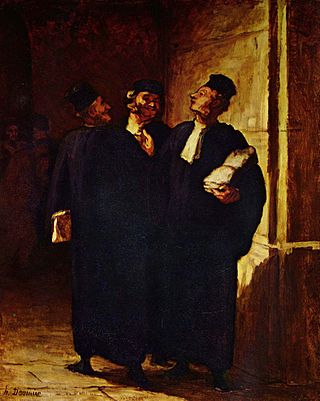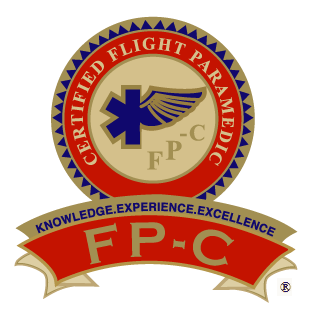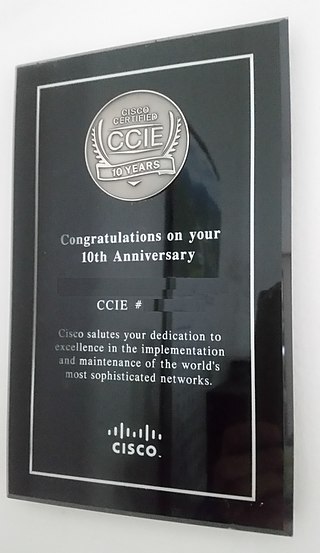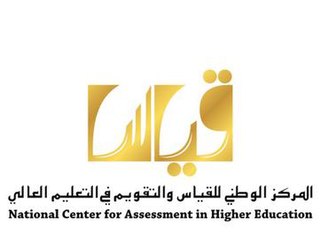Related Research Articles

An advocate is a professional in the field of law. Different countries and legal systems use the term with somewhat differing meanings. The broad equivalent in many English law–based jurisdictions could be a barrister or a solicitor. However, in Scottish, Manx, South African, Italian, French, Spanish, Portuguese, Scandinavian, Polish, Israeli, South Asian and South American jurisdictions, "advocate" indicates a lawyer of superior classification.

Maturità or its translated terms is a Latin name for the secondary school exit exam or "maturity diploma" in various European countries, including Albania, Austria, Bosnia and Herzegovina, Bulgaria, Croatia, Czech Republic, Hungary, Italy, Kosovo, Liechtenstein, Montenegro, North Macedonia, Poland, Serbia, Slovakia, Slovenia, Switzerland and Ukraine.

Certified Management Accountant (CMA) is a professional certification credential in the management accounting and financial management fields. The certification signifies that the person possesses knowledge in the areas of financial planning, analysis, control, decision support, and professional ethics. There are many professional bodies globally that have management accounting professional qualifications. The main bodies that offer the CMA certification are:
- Institute of Cost Accountants of India;
- Institute of Management Accountants USA;
- Institute of Certified Management Accountants (Australia);
- Certified Management Accountants of Canada.

Test of English as a Foreign Language is a standardized test to measure the English language ability of non-native speakers wishing to enroll in English-speaking universities. The test is accepted by more than 11,000 universities and other institutions in over 190 countries and territories. TOEFL is one of several major English-language tests worldwide, including IELTS, Pearson Test of English (PTE), Duolingo English Test, Cambridge Assessment English, and Trinity College London exams.

A court reporter, court stenographer, or shorthand reporter is a person whose occupation is to capture the live testimony in proceedings using a stenographic machine or a stenomask, thereby transforming the proceedings into an official certified transcript by nature of their training, certification, and usually licensure. This can include courtroom hearings and trials, depositions and discoveries, sworn statements, and more.
A bar examination is an examination administered by the bar association of a jurisdiction that a lawyer must pass in order to be admitted to the bar of that jurisdiction.
Membership of the Royal Colleges of Physicians of the United Kingdom (MRCP(UK)) is a postgraduate medical diploma in the United Kingdom (UK). The examinations are run by the Federation of the Medical Royal Colleges – the Royal College of Physicians of London, the Royal College of Physicians of Edinburgh, and the Royal College of Physicians and Surgeons of Glasgow. The three Royal Colleges of Physicians share this common three part assessment in general medicine which consists of two written parts and one clinical examination. Examinations are held throughout the UK and in overseas centres.
The Oracle Certification Program certifies candidates on skills and knowledge related to Oracle products and technologies.
The American Board of Medical Specialties (ABMS) is a non-profit organization established in 1933 which represents 24 broad areas of specialty medicine. ABMS is the largest and most widely recognized physician-led specialty certification organization in the United States. The other certification organizations in the United States are the American Board of Physician Specialties and American Osteopathic Association Bureau of Osteopathic Specialists.
An admission to practice law is acquired when a lawyer receives a license to practice law. In jurisdictions with two types of lawyer, as with barristers and solicitors, barristers must gain admission to the bar whereas for solicitors there are distinct practising certificates.
The TestDaF, formally Test Deutsch als Fremdsprache, is a standardised language test of German proficiency for non-native German speakers. It aims at people who would like to study at, or academics and scientists who want to work in, German universities. The test is run by the TestDaF-Institut.

A certified flight paramedic (FP-C) is a person who has met the advanced certification requirements for flight paramedics established for this designation by the International Board of Specialty Certification (IBSC), a not-for-profit organization responsible for the administration and development of specialty certification exams for critical care professionals. The FP-C exam was the first specialty paramedic certification offered by the Board for Critical Care Transport Paramedic Certification in 2000. This certification is designed for experienced paramedics who have demonstrated advanced knowledge of critical care medicine.
In an educational setting, standards-based assessment is assessment that relies on the evaluation of student understanding with respect to agreed-upon standards, also known as "outcomes". The standards set the criteria for the successful demonstration of the understanding of a concept or skill.
C2 Proficiency, previously known as Cambridge English: Proficiency and the Certificate of Proficiency in English (CPE), is an English language examination provided by Cambridge Assessment English (previously known as Cambridge English Language Assessment and University of Cambridge ESOL examination).
Florida Teacher Certification Examinations (FTCE) are standardized tests used to assess the competencies of prospective teachers according to Florida's Sunshine State Standards. FTCE refers to 47 different exams: four General Knowledge sub-tests, one Professional Education exam, and 42 Subject Area examinations.
The California Basic Educational Skills Test (CBEST) is a standardized test administered in the state of California. It is available as an option in Oregon and Nevada. The test is intended to score basic proficiency in reading, mathematics, and writing. The test is divided into three sections: the reading and math sections each containing 50 multiple-choice questions; and the writing section, consisting of two essay questions. The entire test must be completed in four hours, and test-takers may allocate the time to each section at their discretion. There is no limit to the number of times the test may be taken. Test-takers do not have to pass all three sections in one sitting. A $41 registration fee for paper-based testing must be paid each time the test is taken.

The Cisco Certified Internetwork Expert, or CCIE, is a technical certification offered by Cisco Systems. The Cisco Certified Internetwork Expert (CCIE) and Cisco Certified Design Expert (CCDE) certifications were established to assist the industry in distinguishing the top echelon of internetworking experts worldwide and to assess expert-level infrastructure network design skills worldwide. Holders of these certifications are generally acknowledged as having an advanced level of knowledge. The CCIE and CCDE communities have established a reputation for leading the networking industry in deep technical networking knowledge and are deployed in the most technically challenging network assignments. The expert-level certification program continually updates and revises its testing tools and methodologies to ensure and maintain program quality, relevance and value. Through a rigorous written exam and a performance-based lab exam, these expert-level certification programs set the standard for internetworking expertise.

The Court of Master Sommeliers (CMS) is an educational organisation established in 1977 to encourage improved standards of beverage service by sommeliers, particularly in wine and food pairing. From the court's inception through 2018, a worldwide total of 274 people have earned its Master Sommelier diploma, the highest level.
The actuarial credentialing and exam process usually requires passing a rigorous series of professional examinations, most often taking several years in total, before one can become recognized as a credentialed actuary. In some countries, such as Denmark, most study takes place in a university setting. In others, such as the U.S., most study takes place during employment through a series of examinations. In the UK, and countries based on its process, there is a hybrid university-exam structure.

Measurement is derived from the verb 'to measure' which means to assess something; in Arabic 'yaqees' 'measure' has the meaning of comparing something to something else. In this sense, measurement is a daily practice that manifests itself in all our assessment activities, whether we assess concrete things in terms of size and color, or abstract things such as human relations. The ultimate goal of 'measuring' something is to assess ourselves in comparison to everything else in the world.
References
- ↑ "CERTIFICATION TESTING: RULES, POLICIES, AND PROCEDURES" (PDF). National Verbatim Reporters Association. Retrieved 10 September 2011.[ permanent dead link ]
- ↑ "NVRA certifications".